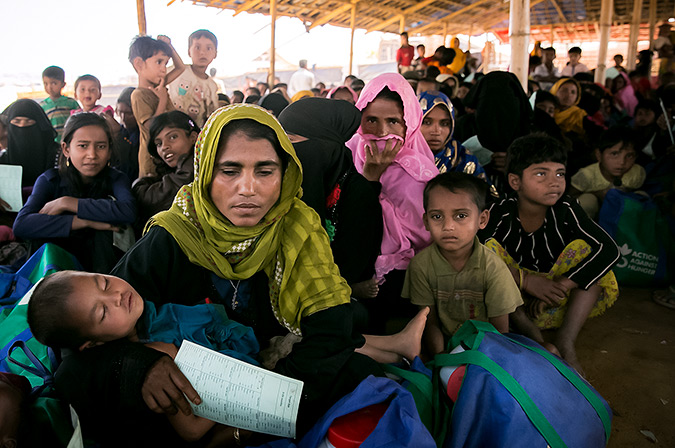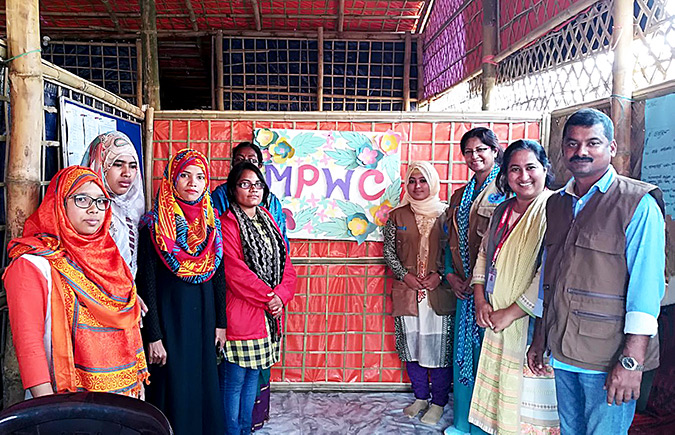Rohingya refugee women find haven of safety and learning in Multi-Purpose Women's Centre
Date:
Author: Syeda Samara Mortada
In the refugee camp across the border from Myanmar, thousands of Rohingya women are the most vulnerable to the health and security risks of camp life. A dedicated centre offers them sanctuary, basic services and skills training to move their life forwards.

Cox's Bazar, Bangladesh — The atmosphere inside the Multi-Purpose Women's Centre (MPWC) is a welcome contrast to the rest of the Rohingya refugee camp in Balukhali, eastern Bangladesh. Children play happily on the floor while their mothers sit around chatting, consulting with medics, or practising with sewing machines.
The centre in Cox's Bazar, near the border with Myanmar, is supported by UN Women and implemented by Action Aid, with technical assistance from Dhaka's Ministry of Women and Children Affairs (MoWCA). It aims to provide the most vulnerable and marginalized Rohingya women with life-saving information, training, support, skills and basic sanitation facilities.


More than a hundred women have already visited the centre so far to make use of the paramedics' unit, psycho-social support unit, and children's corner available within the facility. In the outdoor part of the venue are a space to wash clothes, two latrines and a separate bathing space.
A total of 688,000 forcibly displaced Myanmar nationals have entered Bangladesh since 25 August, according to a recent report by the government's Inter Sector Coordination Group. Women and children are the most adversely affected by the crowding. At night, women find it difficult even to visit the camp latrines given the lack of adequate lighting and security in the area.
The MPWC provides a separate toilet and an enclosed bathing area, offering women a sense of security. The centre also provides training in life skills, such as tailoring. To date, 20 women have already enrolled in the programme, in two separate batches. The programme aims to give the women a skill they can use to earn money later, but the trainers and the trainees both also receive a stipend for their time during the training.
MoWCA Secretary Nasima Begum visited the MPWC for the first time on 9 February. "Let's help these women earn their own income," Nasima said. "Let's help them have a better livelihood."
She also distributed sheets of compressed rice husk, an alternative cooking fuel with fewer health hazards than some fuels being used by the camp's Rohingya women. The aim of the programme is to distribute 60 kilogrammes of compressed rice husk to each eligible family in three instalments (two instalments have already been completed) over the course of 2018. The recipients have been selected based on a criteria that identifies the most vulnerable families within the camps.
For more information:
Syeda Samara Mortada (English and Bangla)
Communications Analyst, UN Women Bangladesh
M: 0161 182 8015 | Email: [ Click to reveal ]
About UN Women
United Nations Entity for Gender Equality and the Empowerment of Women (UN Women) works to eliminate discrimination against women and girls, to empower women, and to achieve equality between women and men.